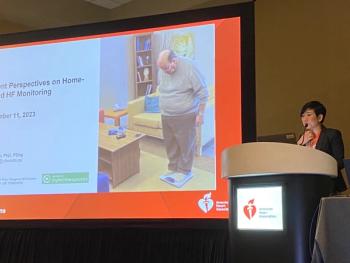
Ready or Not, the New Year Brings Trump’s Price Transparency Rule
The U.S. Circuit Court of Appeals of the District of Columbia ruled Tuesday that the rule could take effect today.
The Trump administration’s price transparency rule, which requires hospitals to disclose what they charge for basic items and services, will take effect today after getting the green light from a U.S.
Empowering consumers by making hospitals show their cards is one of the healthcare highlights that Trump officials point to as they prepare to leave office this month. Other efforts, such as
The American Hospital Association (AHA) had vigorously fought the transparency rule, arguing that requiring disclosure of the closely guarded rates negotiated with payers represented a violation of the First Amendment. The U.S. Circuit Court in the District of Columbia unanimously disagreed; Chief Judge Merrick Garland did not participate in the final disposition, as he is being considered for attorney general by President-elect Joe Biden.
The judges wrote Tuesday that the HHS rule was consistent with the First Amendment and did not seek to expand it, nor did it intend “to otherwise affect traditional or ordinary economic regulation of commercial activity.”
AHA arguments that final prices cannot be known “miss the mark,” the court wrote, because even if the bill depends on many factors, negotiations must start somewhere.
HHS issued instructions December 18, 2020, on the core requirements of the new rule, which require hospitals to report their prices in two ways:
- A machine readable file that contains standard charges for all charges and services at the hospital, including gross charges, discounted cash prices, payer-specific negotiated charges, and de-identified minimum and maximum negotiated charges.
- A consumer-friendly display of at least 300 shoppable services, that can be scheduled in advance, including plain-language descriptions in a searchable format. This section must also provide gross and discounted cash prices, payer specific charges, and de-identified minimum and maximum negotiated charges.
Penalties for violations include fines of $300 per day and publication on the CMS website if the hospital fails to respond to CMS’ demand for correction action. Enforcement may prove tricky, however. According to a
The law appears to generally apply to state-licensed entities but not those under the Indian Health Service facilities, Veterans Affairs facilities, and Department of Defense Military Treatment Facilities. Also exempt are “ambulatory surgical centers or other nonhospital sites-of-care from which consumers may seek healthcare items and services.”
Enforcement will occur through audits that will start in January and based on complaints, CMS said in its statement. However, the AHA appealed to the incoming Biden-Harris administration
“We, like your Administration, have made it clear that tackling the COVID-19 pandemic should be our nation’s highest priority,” the letter states.
On the day of the appellate ruling the Healthcare Financial Management Association reported that hospital advocates sought to
But going against the judges could be tricky politically for the Biden team, since the judges note that Trump’s HHS acted in the wake of complaints about surprise hospital bills after passage of the Affordable Care Act. The bill’s chief purpose, they wrote, is to “shift to hospitals some of the burden that patients currently bear” in “navigating a non-transparent hospital-care system.”
The rule may represent an about-face from prior policy but that’s not necessarily a bad thing, they wrote. “The Secretary weighed the rule’s costs and benefits and made a reasonable judgment that the benefits of easing the burden for consumers justified the added burdens imposed on hospitals.”
Newsletter
Get the latest industry news, event updates, and more from Managed healthcare Executive.























